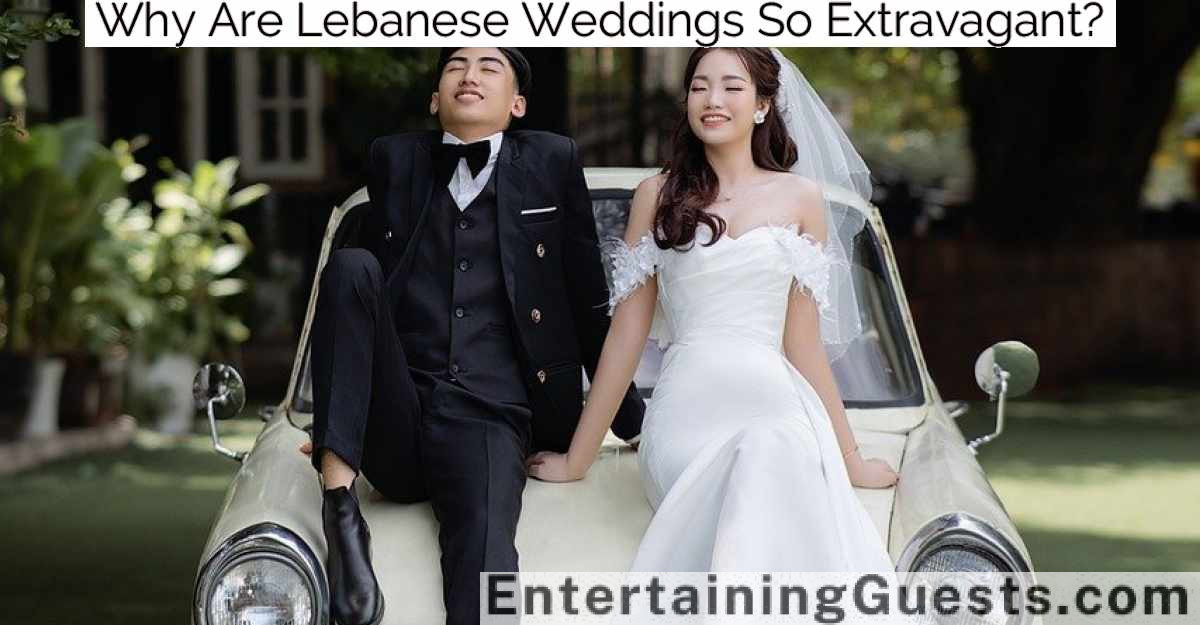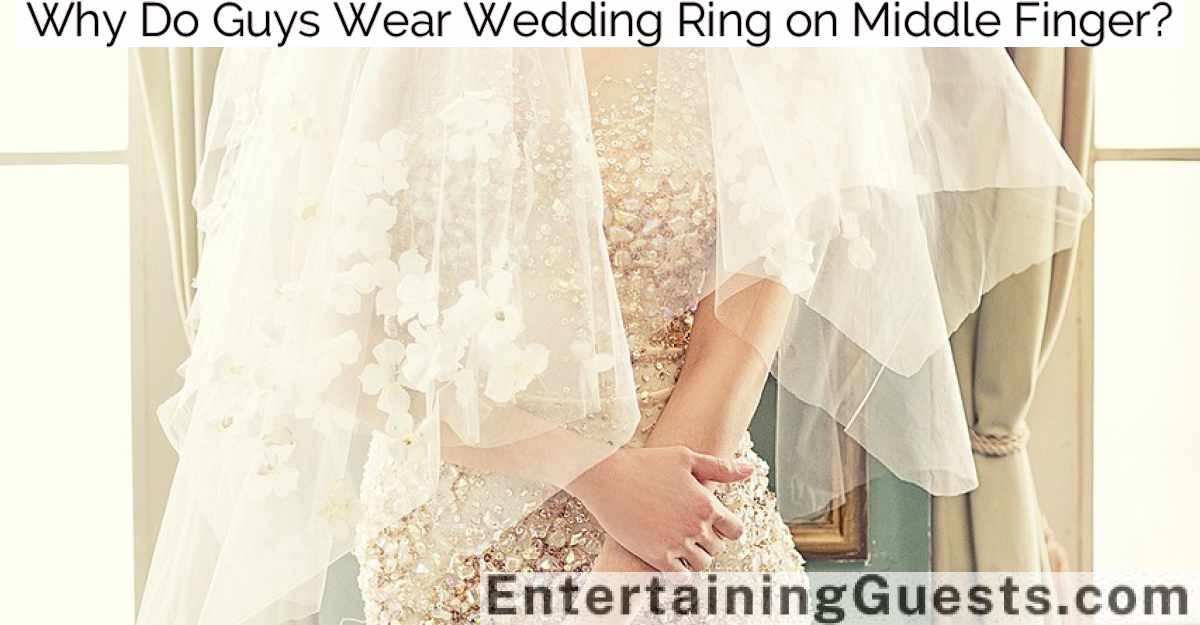Lebanese weddings are extravagant as they symbolize not only social status but also a deep-seated cultural pride. Families showcase their economic power and hospitality through opulent venues, extensive guest lists, and lavish food spreads, which are steeped in tradition and communal significance. The celebration involves intricate floral arrangements, dramatic lighting, and professional entertainment, all meant to foster societal cohesion and guarantee cultural continuity. Each element, from the Zaffe dance troupe’s entrance to the luxury-laden décor, narrates a story of heritage interwoven with modernity. Exploring further, one finds these weddings are a vibrant tapestry of history, identity, and community.
Key Takeaways
- Lebanese weddings showcase familial wealth and social status through lavish venues and opulent decor.
- Cultural traditions emphasize grand celebrations to reaffirm Lebanese identity and societal cohesion.
- Hospitality is central, with extensive, diverse menus and personalized guest experiences reflecting generosity.
- Entertainment features like live bands and dramatic lighting create a memorable, immersive atmosphere.
- Floral arrangements and designer attire are used to express cultural pride and personal taste.
Cultural Significance and Traditions
Lebanese weddings, deeply embedded within the cultural fabric of the society, showcase a rich amalgamation of historical traditions and contemporary practices. These ceremonies, often lavish and exuberant, aren’t merely celebrations of union but also a vibrant exhibition of Lebanon’s deep-rooted heritage and communal values.
Central to these occasions is the Zaffe, a traditional dance troupe that heralds the couple’s entry with music, dance, and poetic praises. This custom, which dates back centuries, serves as a bridge connecting the past with the present, encapsulating the spirit of Lebanese communal life. Here, the collective joy isn’t just observed but vivaciously lived by every attendee.
Moreover, the intricate henna night, a pre-wedding ritual, symbolizes protection and good fortune for the bride. Women gather to sing, dance, and share stories, weaving a tapestry of intergenerational bonding and cultural transmission. This ritual underscores the role of women as custodians of folklore and familial unity.
Each element of a Lebanese wedding, from the lavish spreads of food to the elaborate attire, isn’t just for show but resonates deeply with symbolic meanings rooted in hospitality, generosity, and celebration. These weddings aren’t just parties; they’re a profound reaffirmation of Lebanese identity and societal cohesion.
Social Status and Expectations
In Lebanese society, weddings often serve as a platform for families to display their social status and meet societal expectations. These events are meticulously planned to guarantee every detail mirrors the family’s standing and upholds their reputation. Such occasions are not merely celebrations but are pivotal in maintaining or enhancing one’s position within the community.
| Factor | Description | Impact on Social Status |
|---|---|---|
| Venue | Choice of prestigious locations | Reflects wealth and taste |
| Guest List | Inclusion of notable figures | Enhances social standing |
| Wedding Attire | Designers and bespoke outfits | Displays financial power |
| Media Coverage | Engagement of professional photographers/videographers | Broadens social visibility |
The choice of a lavish venue, an extensive guest list featuring prominent community or even national figures, and exclusive designer attire are not just personal choices but strategic decisions aimed at broadcasting affluence and connectivity. The involvement of professional media coverage further amplifies this effect, extending the family’s social reach beyond the physical confines of the event. This display isn’t solely about opulence; it’s a calculated affirmation of social alliances and hierarchies, deeply embedded in the fabric of Lebanese social culture.
The Role of Hospitality
Hospitality, deeply revered in Lebanese culture, plays a pivotal role in weddings, embodying the family’s generosity and warmth toward guests. This tradition, rooted in the Lebanese value system, transforms a wedding from a simple celebration into a grand demonstration of familial pride and social responsibility.
It’s not merely about impressing guests; it’s a profound expression of community and belonging. Lebanese families often go to great lengths to guarantee the comfort and enjoyment of every attendee. This includes meticulously crafted invitations, extensive guest lists, and personalized attention to the needs and preferences of each guest.
The array of foods served, often featuring a blend of traditional Lebanese and international cuisine, is a reflection of the family’s commitment to hospitality. Each dish is prepared to perfection, aiming to cater to a diverse palette, and is as much about sharing culture as it’s about providing sustenance.
Moreover, the interaction between the hosts and the guests is characterized by a high level of attentiveness and respect, highlighting the relational aspect of Lebanese hospitality. It’s not just the scale of the event that matters but also the quality of the connections fostered and the memories created.
This approach guarantees that the celebration is remembered as much for its warmth as for its opulence.
Lavish Venues and Decor
In the context of Lebanese weddings, the choice of venue often reflects the social status and economic power of the families involved.
These spaces aren’t only picked for their opulence but are also strategically adorned with elegant floral arrangements and dramatic lighting to enhance the ceremonial atmosphere.
This practice is deeply embedded in the cultural fabric of Lebanon, where weddings serve as a public display of wealth and social prestige.
Choosing Opulent Event Spaces
Selecting a lavish venue greatly impacts the ambiance and success of Lebanese weddings. The choice of location isn’t merely a backdrop but a profound cultural statement, reflecting the family’s social standing and commitment to hospitality.
Lebanese families often opt for venues that blend opulence with tradition, such as grand hotels in Beirut, ancient castles in the mountains, or luxurious seaside resorts. These choices are deeply embedded in the Lebanese ethos of generosity and celebration.
The interiors of these venues are typically a spectacle of luxury, featuring grand ballrooms with intricate decorations, majestic staircases, and expansive courtyards. The architectural details often include ornate ceilings and glistening chandeliers, which set a dramatic stage for the evening’s festivities.
This opulence extends to the meticulous planning and coordination required to transform these spaces into personalized wedding experiences that captivate all senses.
The significance of these choices goes beyond aesthetics, as they’re also a nod to Lebanon’s rich history and its affinity for blending the modern with the historical. Consequently, the venue becomes a narrative element of the wedding, telling a story of heritage, opulence, and modernity, all woven into one grand celebration.
Elegant Floral Arrangements
Elegant floral arrangements play a pivotal role in enhancing the luxurious ambiance of Lebanese wedding venues. These displays aren’t just decorative elements but are deeply embedded in the cultural ethos, symbolizing prosperity, love, and a deep connection to nature. Lebanese florists often use an eclectic mix of local and exotic flowers, crafting arrangements that are as opulent as they’re meaningful.
The choice of flowers and their arrangement speaks volumes about the family’s social status and their taste. Orchids, peonies, and roses dominate these settings, arranged meticulously to create a visual spectacle that complements the grandeur of the event. The artistry involved extends beyond mere decoration; it’s a careful choreography of colors, textures, and scents designed to evoke emotions and create an unforgettable sensory experience.
Floral designs in Lebanese weddings are tailored to match the theme of the event, often intertwining with elements of the venue’s architecture. They’re strategically placed to guide guests through the venue, from the spectacular entrance paths lined with blooms to the elaborate centerpieces that grace each table.
This not only beautifies the space but also reflects a tradition of hospitality and generosity, inviting guests to partake in the joy and abundance of the occasion.
Dramatic Lighting Techniques
Floral arrangements set the stage, but dramatic lighting techniques truly bring Lebanese wedding venues to life, enhancing the visual drama and elegance of the decor. In Lebanon, lighting isn’t just functional; it’s an integral part of the celebration’s narrative, weaving luminosity and shadow into a visual spectacle that mirrors the cultural richness.
Ethnographers note that lighting sets the emotional tone, with Lebanese weddings often using a blend of soft ambient lights, pinpoint spotlights, and vibrant uplighting to accentuate architectural features and lavish floral displays. These techniques aren’t merely decorative; they’re a reflection of the Lebanese penchant for storytelling through space.
For instance, a common practice is the strategic placement of lights to guide the guests’ attention, often highlighting the grand entrance of the bride and groom, thereby elevating these moments to cinematic heights. Furthermore, custom gobo lights project intricate patterns or the couple’s initials, personalizing the space and embedding deeper meaning into the venue’s very fabric.
The choice of lighting also reflects the communal values of hospitality and generosity. By transforming spaces into ethereal landscapes, hosts communicate a welcome so warm and a celebration so grand, it’s remembered for years. This practice isn’t just about aesthetics; it’s a profound expression of cultural identity and communal pride.
Gourmet Food and Beverages
At Lebanese weddings, the culinary experience is a pivotal element that reflects the country’s rich gastronomic heritage.
Signature dishes aren’t merely served; they’re showcased with pride, often featuring local ingredients and traditional techniques that tell a story of regional flavors.
The variety in beverage selection complements these meals, while the presentation of both food and drinks plays a critical role in amplifying the festivity’s elegance and guests’ enjoyment.
Signature Dishes Showcased
Lebanese weddings proudly showcase a gastronomic extravaganza, featuring traditional dishes that reflect the country’s rich culinary heritage. This culinary display isn’t just about feeding guests; it’s a vibrant expression of identity and cultural pride. Each dish served is steeped in history, and the selection is meticulously planned to represent the regional diversity and familial traditions of the hosts.
Mezze, an array of small dishes, kicks off the feast. It’s more than just a starter; it’s a ritual. From hummus and baba ghanoush to tabbouleh and fattoush, these dishes set the stage, offering a palette of flavors that are at once familiar and celebratory. The prominence of mezze at these weddings isn’t accidental; it embodies the communal and sharing aspects of Lebanese culture.
Following mezze, main dishes like kibbeh, grilled meats, and fish are served. These aren’t everyday recipes but are often reserved for special occasions, highlighting the best of what Lebanese cuisine has to offer. Kibbeh, in particular, varies regionally, with each version telling a story of local ingredients and ancestral techniques.
This focus on traditional foods at weddings does more than satiate hunger—it revives and imparts centuries-old culinary traditions, ensuring they’re savored by the next generation.
Beverage Selection Variety
The beverage selection at Lebanese weddings mirrors the diversity and richness of the country’s culinary landscape, integrating both traditional drinks like arak and modern cocktails to complement the extensive food offerings. This blend not only caters to the varied palates of the guests but also serves as a cultural showcase, reflecting the Lebanese penchant for hospitality and celebration.
Guests can expect a lineup of beverages that include not just arak, a clear, anise-flavored spirit that’s the national drink of Lebanon, but also a variety of wines from the country’s renowned vineyards. Lebanon’s winemaking history, deeply intertwined with its cultural fabric, adds a layer of historical richness to the beverage offerings. The inclusion of both local and international wines guarantees that every guest’s preference is respected and celebrated.
Moreover, the presence of modern cocktails at these weddings highlights the Lebanese’s openness to global influences and their adaptability. Bartenders often infuse these cocktails with local ingredients, creating a fusion that resonates with the younger attendees while maintaining a connection to traditional flavors.
This thoughtful curation of beverages at Lebanese weddings doesn’t just quench thirst; it’s a deliberate act of cultural expression and an integral part of the gastronomic experience.
Culinary Presentation Impact
Gourmet foods and beverages are meticulously presented at Lebanese weddings, enhancing the sensory experience and reflecting the nation’s rich culinary heritage. Each dish serves not only as a meal but also as a piece of art, showcasing the meticulous care and creativity that chefs pour into their craft. This presentation style goes beyond mere aesthetics; it’s a celebration of communal values and a confirmation of the importance of hospitality in Lebanese culture.
The layout of food and drink stations is strategically planned to facilitate social interactions. Guests are invited not only to taste but also to observe the preparation of dishes like kibbeh and tabbouleh, turning mealtime into an interactive spectacle. This arrangement reinforces social bonds and honors the communal feasting traditions deeply embedded in Lebanese society.
Moreover, the choice of ingredients reflects a deep connection to the land. Locally sourced produce and spices are preferred, which supports local farmers and markets, sustaining the economic and social fabric of the community. The emphasis on fresh, high-quality ingredients guarantees that the celebration isn’t just a feast for the eyes but also a tribute to the Lebanese terroir, elevating the overall wedding experience to a lavish cultural immersion.
Entertainment and Performances
At traditional Lebanese weddings, entertainment is rich with cultural performances, including professional belly dancers and live musicians. These elements aren’t merely for amusement; they’re deeply rooted in Lebanese heritage, reflecting the community’s values and traditions. Each performance is carefully chosen to honor the heritage and contribute to the unforgettable atmosphere of the celebration.
Analyzing the entertainment choices gives insight into their significance:
-
Belly Dancing: This ancient art form engages guests, symbolizing celebration and joy. It’s not just a dance but a narrative woven through rhythmic movements, enchanting the audience and connecting them to centuries-old traditions.
-
Live Musicians: Bands typically play a mixture of traditional Lebanese music and popular songs. This live performance creates a vibrant, energetic environment that encourages dancing and participation, fostering a sense of unity and communal joy.
-
Zaffe: A traditional dance troupe leads the bride and groom with music and chanting, a ceremonial procession that highlights the importance of community in Lebanese culture.
-
Fireworks: Often concluding the festivities, fireworks are a spectacular display of light and sound, symbolizing hope and a bright future.
These elements aren’t just entertainment; they’re an integral part of the cultural tapestry that’s celebrated at Lebanese weddings, ensuring each event is a memorable, communal, and cultural celebration.
Frequently Asked Questions
How Do Lebanese Weddings Accommodate International Guests?
Lebanese weddings often feature multilingual invitations and menus to accommodate international guests. They’ll hire interpreters and provide culturally diverse entertainment, ensuring everyone’s comfortable and engaged in the celebration’s vibrant atmosphere.
What Are Common Gift Expectations at Lebanese Weddings?
Guests at Lebanese weddings typically give generous cash gifts, reflecting the cultural emphasis on supporting the couple’s new life financially. Gold jewelry is also a favored present, symbolizing wealth and prosperity.
Are Destination Weddings Popular Among Lebanese Couples?
Destination weddings are gaining popularity among Lebanese couples, seeking unique experiences abroad. They often choose scenic locales that offer a blend of luxury and cultural charm, reflecting their adventurous and lavish lifestyles.
How Do Lebanese Weddings Cater to Children?
Lebanese weddings often include dedicated areas for children, featuring entertainment like clowns and magicians, and kid-friendly menus, ensuring they’re engaged and allowing adults to enjoy the festivities without worry.
What Attire Is Recommended for Guests at Lebanese Weddings?
Guests at Lebanese weddings typically wear formal attire. Men often don suits, while women choose elegant dresses. The cultural emphasis on celebration and respect informs these choices, aligning with societal norms and expectations.
Conclusion
Lebanese weddings epitomize cultural magnificence, weaving together centuries-old traditions with modern expectations.
These events aren’t just celebrations but a showcase of social status and generous hospitality, manifesting in opulent venues, sumptuous banquets, and extravagant entertainment.
Each element, from gourmet dishes to live performances, is carefully curated to honor heritage and foster community bonds.
Ultimately, these weddings aren’t merely events but grand narratives that reaffirm social identities and cultural values within the Lebanese community.







